
Archives

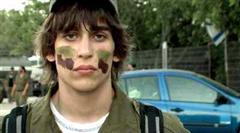
Israel Ltd.
The film accompanies a group of young New Yorkers on their intensive bus journey across a strong and righteous Israel. The marketing of Israel as such, juxtaposed against the reality, reveals our need as a society to avoid confronting our flaws.
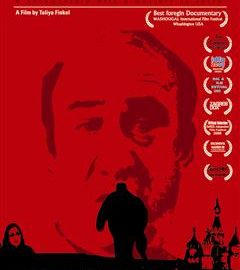
Over My Dad’s Body
This documentary thriller follows filmmaker Taliya’s story. When Taliya was young, she never knew for sure whether her uncle was a KGB agent in disguise or a true member of the family. Her father claimed that his brother had been murdered in a Ukrainian prison and substituted by an imposter from the KGB, forced on the family by the old soviet regime. Her father presented his claims in a way that made his family believe this unlikely story. After the tragic death of the father, the mystery surrounding his stories continued to grow.
Five years after his death, filmmaker Taliya Finkel goes on a fascinating journey in order to unfold the mystery around her departed father. Guided by a private investigator, she travels from Israel to the Ukraine and back in a desperate quest to find proof of her father’s story. During the voyage, Taliya investigates the thin line that separates imagination and reality, sanity and madness.
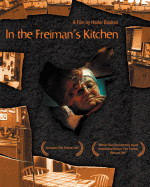
In the Freiman’s Kitchen
Gush Katif, 2005. The Freiman couple, Yaakov (78) and Miriam (68), follow the meticulous routine that is natural for their age. A crisis on a national scale threatens their entire system of personal loyalties – their life as a couple, their religious convictions, and value system. They suddenly face an ordeal, the likes of which they have never experienced before! To deal with this crisis they entrench themselves in their kitchen and focus on their daily routine.
After the first cup of coffee in the morning, they read Psalms together. Everything happens in the kitchen: telephone calls, cooking, and guests. Under normal circumstances, the atmosphere in the kitchen would be warm, calm, secure, and filled with laughter. But the storm raging in the outside world begins to penetrate and bursts through the Freiman’s defenses. The settlement’s public address system broadcasts a message. Miriam carefully opens a window and hears: “Emergency meeting for all the members.” She hurriedly closes the window to avoid the danger. As the days pass, trial, tribulation, and doubt enter their “fortress.” Their love for each other and belief in God are put to the test. This intimate and emotional film provides a glimpse into an aging couple’s relationship and beliefs during a critical time.
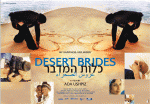
Desert Brides
Miriam El Kwader, a Bedouin wedding photographer and mother of seven, living in an unknown and neglected Negev village, reveals through her camera lens, the world of Bedouin weddings; the most distressing issue revealed is polygamy.
This is the story of three, relatively educated and independent women, trying to survive, each in their own way in their world – a life of polygamy. One is a “first wife”, living in constant fear that her husband will bring home a second wife. The other two are pushed into marrying already married men, and become “second wives”, forced to cooperate within a structure they despise or are afraid of.
The family tragedies presented in this film, highlight the strength and survival of the social structures and their injustices; leaning usually on the victims` partial cooperation.

You Never Know
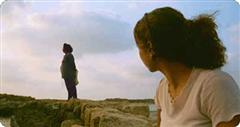
Paradise Lost
Arab Israeli filmmaker Ebtisam Mara`ana grew up in Paradise (Fureidis in Arabic), a small fishing village overlooking the Mediterranean. One of the few Arab communities remaining after the 1948 war, Paradise became culturally and politically isolated as Jewish settlements sprung up around it, and today it is a place defined by silence and repression.
This thought-provoking and intimate film diary follows the director’s attempt to recreate the village’s lost history, including the story of her childhood hero Suuad, the legendary local “bad girl” who was imprisoned as a PLO activist in the 1970’s and banished from the community. The director’s frustration builds as her questions are resisted, and her hopes soar when she finally meets Suuad, now a Doctor of Law living in the UK.
Stunning cinematography and evocative music underscore the power of Mara’ana’s film, whose lyrical, emotionally charged tone is strikingly honest and straightforward. Presenting the rarely heard voice of an Arab Israeli, this important film offers valuable insight into the contradictions and complexities of modern womanhood and national identity in the Middle East.

Voices from El-Sayed
In the Israeli Negev desert lays the Bedouin Village of El-Sayed. No hearing aids can be seen because in El-Sayed deafness is not a handicap. The tranquility of the village is interrupted by Salim El-Sayed’s decision to change his deaf son’s fate using the Cochlear Implant Operation. Salim’s decision is evoking great conflict in the village threatening the tradition of coexistence between deaf and hearing.
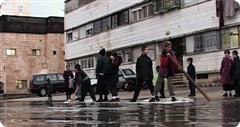
The Yard
To the occasional onlooker, my childhood yard may appear like another shabby parking space in a Jerusalem ultra-orthodox neighborhood. To me, it is the first “outside” I encountered, the landscape of the only home I have ever known. I have been living in this yard for thirty four years. As an adult, it continues to fascinate me with its ever-changing mood. It had embraced secular, religious, and ultra-orthodox atmospheres, but today, we are one of the last non-Ultra orthodox families living here.
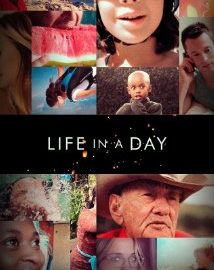
Life in a Day
A documentary shot by filmmakers all over the world that serves as a time capsule to show future generations what it was like to be alive on the 24th of July, 2010
